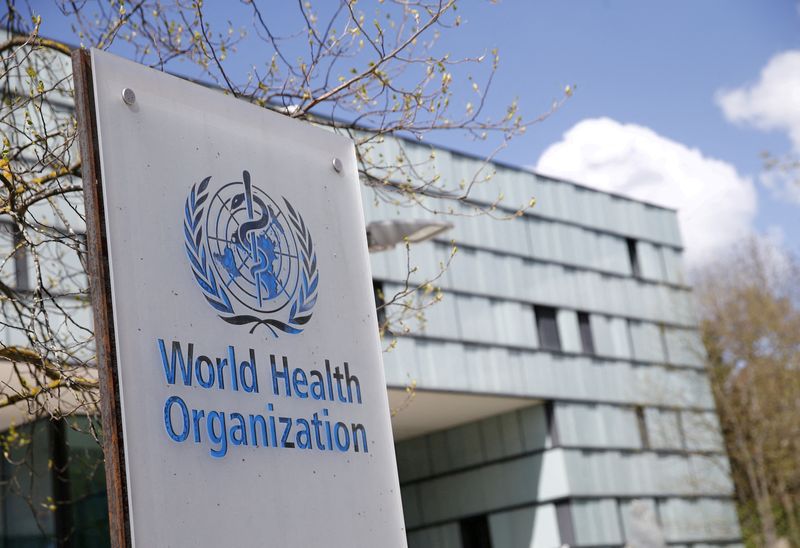By Emma Farge and Jennifer Rigby
GENEVA/LONDON (Reuters) -Developing nations are lobbying for fairer access to treatments than they got during COVID-19 as global talks begin on drafting new health rules for combating pandemics.
But they worry that the odds of a favourable outcome from a scheduled 18 months of negotiations at the World Health Organization (WHO) are already stacked against them, as they lack the negotiating firepower of wealthier countries.
South Africa, Pakistan and India were among countries that made formal requests during an initial three days of talks, which ended on Wednesday, to try to ensure the process is inclusive.
That challenge is "very daunting," said an ambassador from a developing country who asked not to be named. "The advanced countries have the requisite resources and can afford to have it covered and we cannot," he said.
Countries agreed for a six-member body to rework an initial draft with a view to starting negotiations on that version in February next year, the WHO said in a statement late on Wednesday.
Then, over a year of tough negotiations on the new document lie ahead, with a deal targeted by May 2024. One diplomat estimated the talks alone would take up to 400 hours.
Countries' relative negotiating clout is significant since questions of fairness - including access to vaccines and drugs and calls for transparency in governments' dealings with pharmaceutical firms - are set to be at the heart of talks.
WHO chief Tedros Adhanom Ghebreyesus called the planned accord a chance to make the world safer for generations, while labelling the distribution of shots during COVID-19 as "vaccine apartheid".
Dr Jaouad Mahjour, the WHO's Assistant Director-General, Emergency Preparedness and International Health Regulations, said the health body had heard small delegations' concerns "very clearly" and would be taking them into consideration.
Three sources familiar with the negotiations say developing countries are seeking a trade-off built into the treaty, which would reward them for sharing information about disease outbreaks with guarantees of access to treatments.
Pressure for a breakthrough on this may increase, they say, with talks on a temporary waiver of intellectual property rights for COVID treatments deadlocked at the World Trade Organization.
RESOURCES FOR TALKS
In parallel to the treaty talks, country teams are discussing setting up a G20 pandemic fund and revamping the WHO's existing health emergency rules. Experts following the latter will have to sift through over 20 proposals containing some 300 amendments.
To respond to the challenge, some Western countries like the United States have appointed a lead negotiator. U.S. representative Pamela Hamamoto told reporters the current draft accord represented a "kitchen sink version" and said "a lot" would need to change before Washington could sign it.
Meanwhile, "small governments will not be able to engage in (the) process as they will be totally overwhelmed," said Clare Wenham, associate professor of global health policy at the London School of Economics and Political Science, who follows the WHO.
Many poorer countries lack technical specialists to advise on WHO matters within the Geneva diplomatic mission, where the U.N. agency is based. Instead, diplomats from smaller nations split their time between health and other topics, like trade.
South Africa's Precious Matsoso, co-chair of the pandemic treaty talks, told Reuters countries could hire experts to help, or band together for regional representation.
